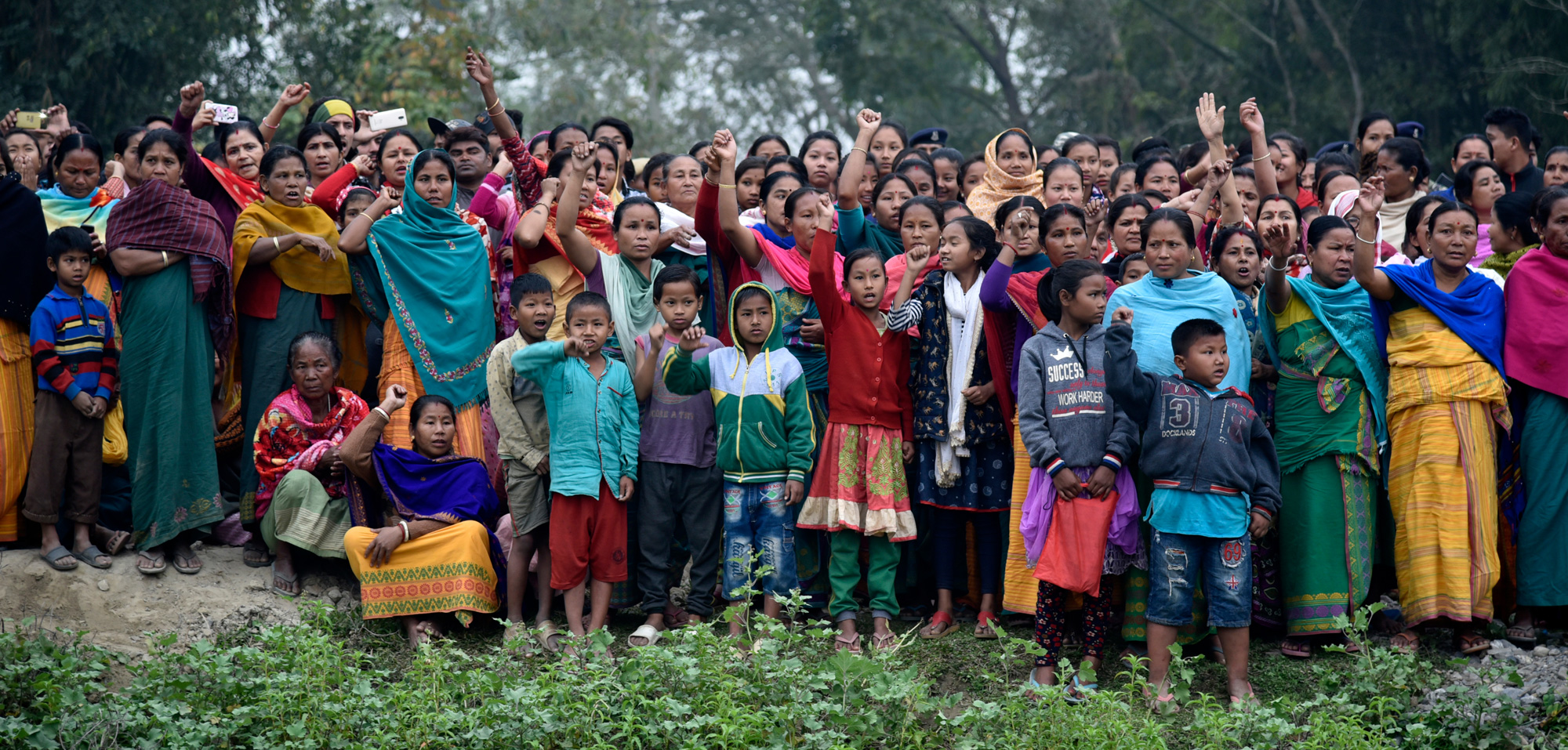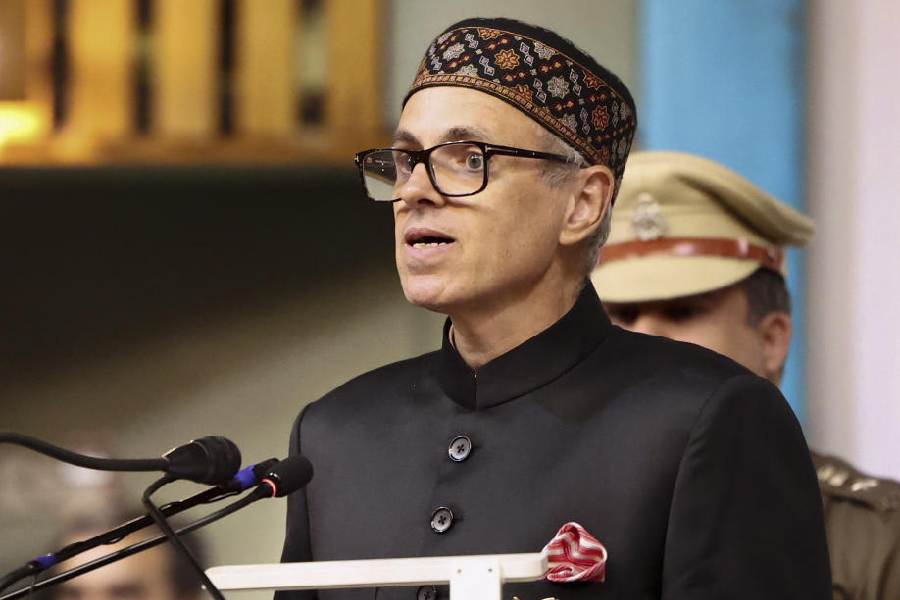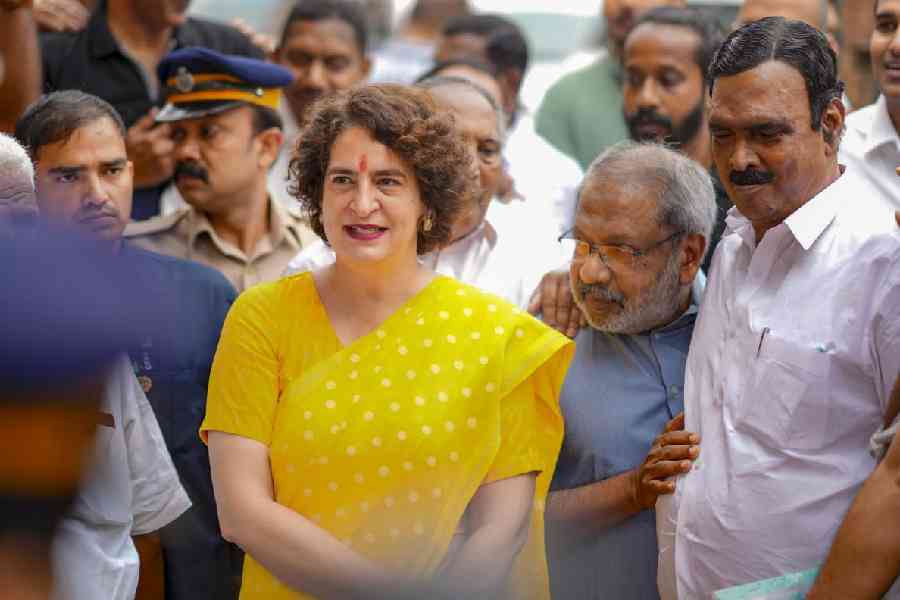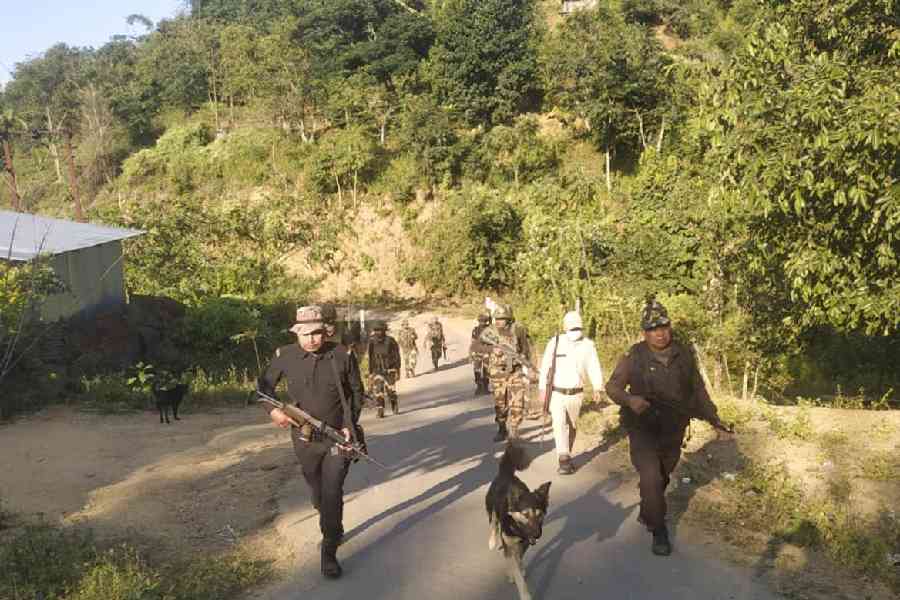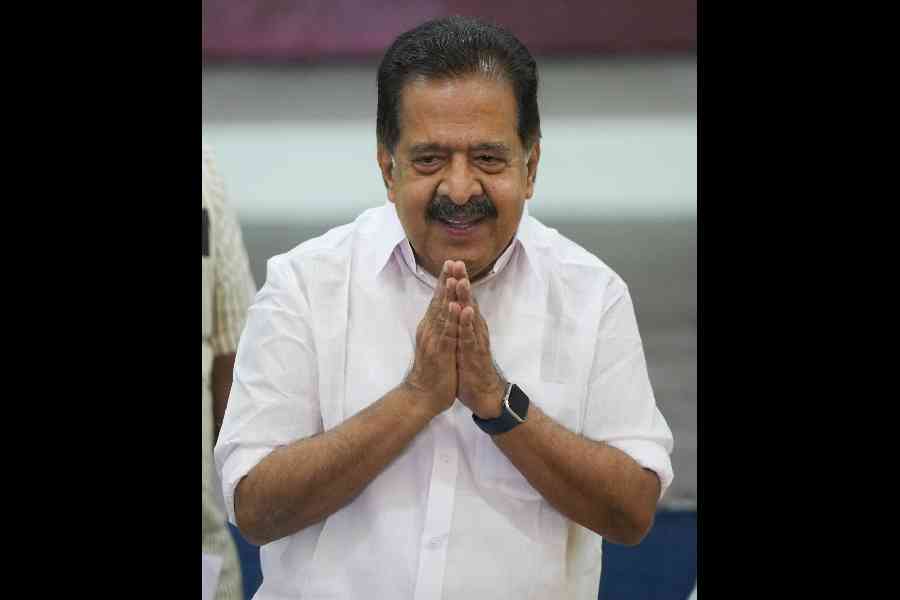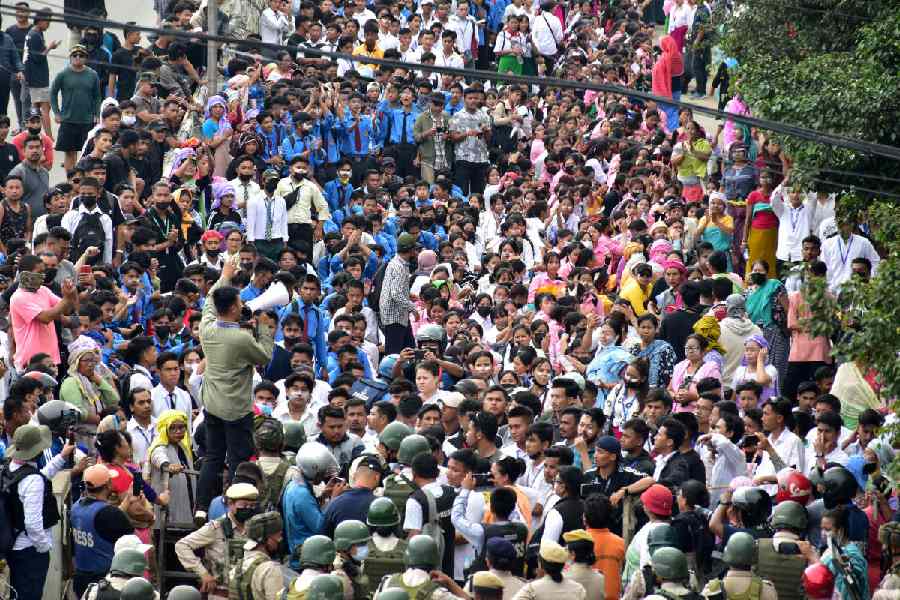“No road, no vote” read the banner that scores of people unfurled. They chanted slogans to demand a pucca road to their villages, and vowed to boycott the Lok Sabha polls if it was not fulfilled.
Hailing from villages under Chhotka Nuaon panchayat in Buxar district, around 180km west from Bihar’s capital, the people sat for hours in the sun near Gobinaopur village — that is part of the Chhotka Nuaon panchayat — on Sunday to showcase their demand. They asserted that they would not let any politician venture in the area to seek votes for the Lok Sabha election.
“We have waited decades for a road that would connect our villages to the district headquarter town of Buxar, which is just around 4km from here. So many MPs and MLAs came and went, but nothing happened. We have now decided to boycott the Lok Sabha elections and stop sending people to the Parliament as our representatives,” Jai Prakash Kumar, the mukhiya (panchayat head) of Chhotka Nuaon, told The Telegraph.
Kumar added that there was a mud road that weaved through the villages, but over the decades it has become virtually unusable for vehicles. Those on foot also shy away from it due to the big and small potholes that pockmark it.
“We can’t easily take people in need of medical attention to Buxar town. No ambulance can traverse this road. If there is a case of delivery, it means danger for the pregnant woman,” Kumar said.
The people present at the protest were from Govindpur, Kodarwa Puliya, Balua, Balrampur, Kritpura, Larai, Nawagaon, Noniapur, Sovabandh, Jarigawan, Karhansi and a few other villages. Around 10,000 voters live in this area.
“Our children are forced to walk for kilometres to reach the higher secondary school in town,” said Ramesh Kumar of Noniapur village.
Bihar’s chief electoral officer H.R. Srinivasa said that he would speak to the Buxar district magistrate over the villagers’ demands.
“Election Commission’s directions are there that government officials are sent to the aggrieved people to make them understand that polls should not be boycotted because the right to vote is very important in democracy,” Srinivasa said.
“It helps them choose their representatives who would resolve their issues.”

